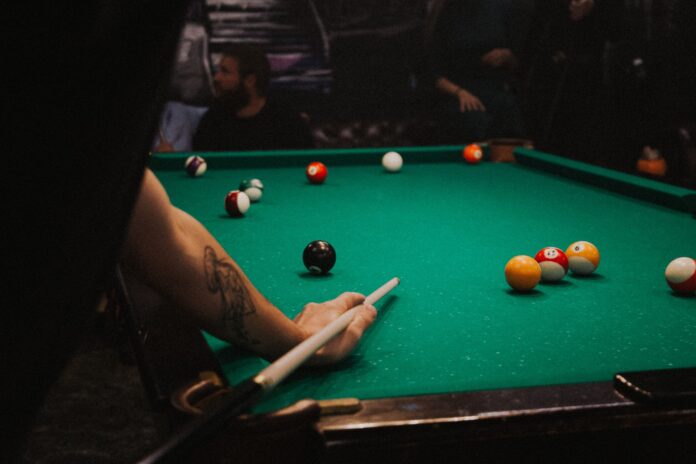Did you know that billiards, now known as pool, was the first sport to have a world championship? Probably not. Almost everyone that has tried their shot at the pool table was terrible at first. If you do some digging, you will realize that even the pros barely knew how to hold the cue.
Pool is a unique and safe game that you can play by yourself with your friends. Being a fancy game, it is easy for people to underestimate its difficulty, especially beginners. Several factors go into excelling in the game.
It is vital first to learn the basics to practice better and elevate your game. Here are some handy tips for beginners.
1. Practice Your Grip
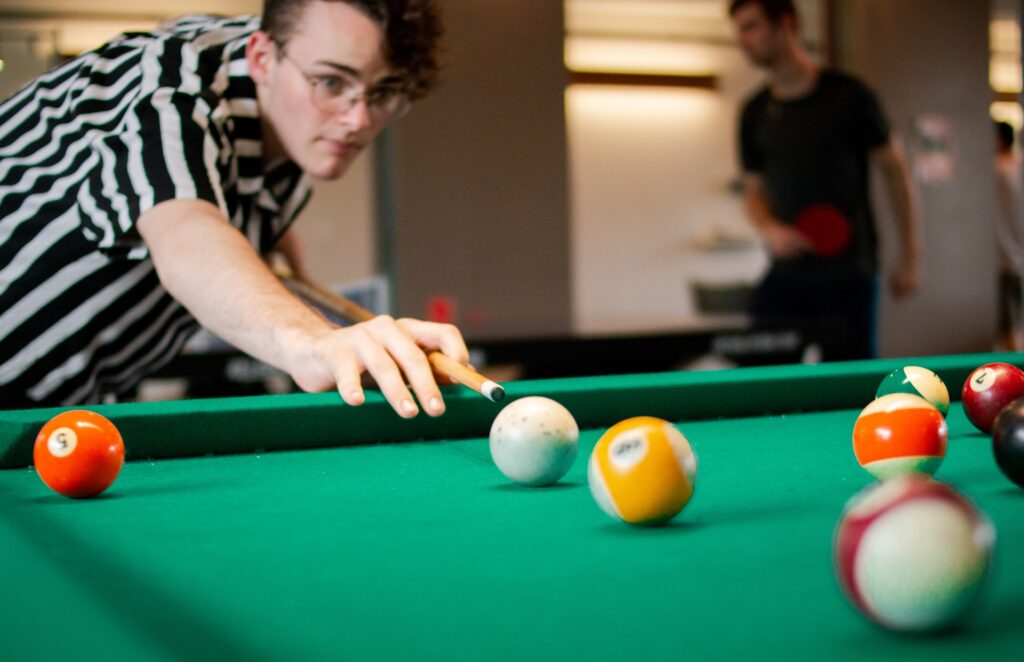
Most players make the mistake of gripping too tightly. Note that gripping the cue too hard does not mean you will get a perfect shot. In fact, it will work in the opposite. When you are practising, it is best to use a light and loose grip. A tight grip raises the butt of the cue, making it almost impossible to get a straight shot.
Also, with a tight grip, you are very likely to shoot the ball out of the table. Make a loose grip but strong enough to move the ball across the table.
2. Perfect Your Stance
After getting a good cue from poolcueguide.com, the next thing you should work on is your stance. There is no universal stance for pool players, but you must be able to find a comfortable position. Its primary purpose is to ensure visual alignment and comfortable body position that you can remain consistent with for a good game.
It all starts with the footing. Start with establishing your shotline and place the dominant foot where you intend to shoot. Then put the other foot forward, give some space between the dominant foot, and get ready for the shot.
The position of your chin will also affect your stance. While shooting, ensure your chin is always above your cue stick. At the same time, the dominant eye should be aligned with the shotline. This way, you can get a straight shot.
To avoid accidents and to hit yourself, also ensure there is hip clearance. Then, give yourself adequate space to swing and make a shot.
3. Develop A Pre-Shot Routine
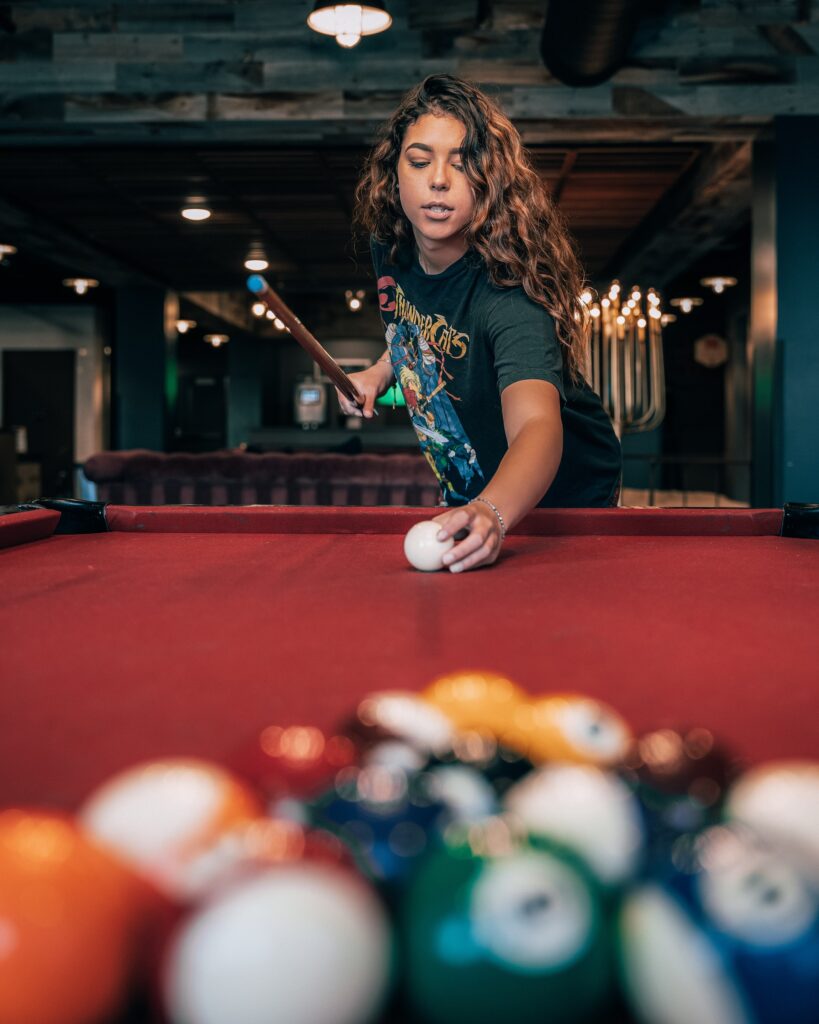
These are the steps you make before proceeding to your shot. Why is this important? The routine puts you in a better position for precision shots. The ritual also increases your consistency in the game.
Develop a strategy for your next shot by walking around the table. From the different angles and positions, you will understand better what you need to do to get the perfect shot.
Check on your stance and your grip while practising motions. In the process, you will be able to find the perfect and comfortable position to make a shot. In addition, the process gives you focus and a natural rhythm.
The more your practice this routine, the better you will master it for an elevated game.
4. Practice Your Speed Control
Good play is all about speed control with the ball. Once you master this, nothing can stop you from getting 5-stars shots. It is essential to acknowledge that speed control may not be a piece of cake, but this does not mean it cannot be done.
Gaps in speed control will either leave you with too much distance or bad angles.
5. Practice Your Stroke
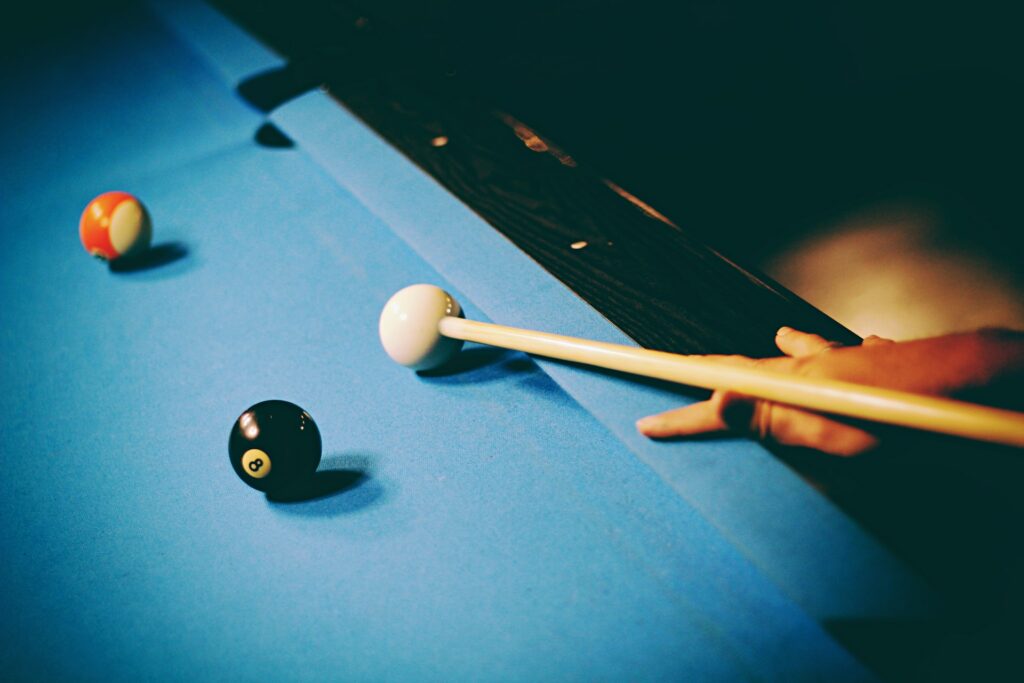
When it comes to pool, your stroke is everything. The quality of your strokes will determine how good your gameplay will be. The perfect stroke is achieved when you use your elbow as the hinge and the hanging forearm as the pendulum. Thus, the stroke is called the pendulum stroke.
Take time to practice this stroke, and even use it for your pre-shot routine. While at it, remember not to grip the cue too tightly to make your stroke steady and allow smooth movement.
6. Stay Down After Shots
One mistake most beginners make is rushing to get up or even jump after a shot. However, you will notice that the more experienced players usually stay down. This is because by staying down, they ensure their cue stays aligned with the shotline.
Abrupt movement sometimes can put your cue of balance and distract the movement of the ball. This can easily make you lose your shot. So how do you ensure you give yourself adequate time to get up?
It is pretty simple; after shooting, count to three, then get up. The trick is to remain patient after every shot. The first few times may prove challenging, but with time you will master it. Your gameplay will be calmer after about six tries.
7. Practice Breaks
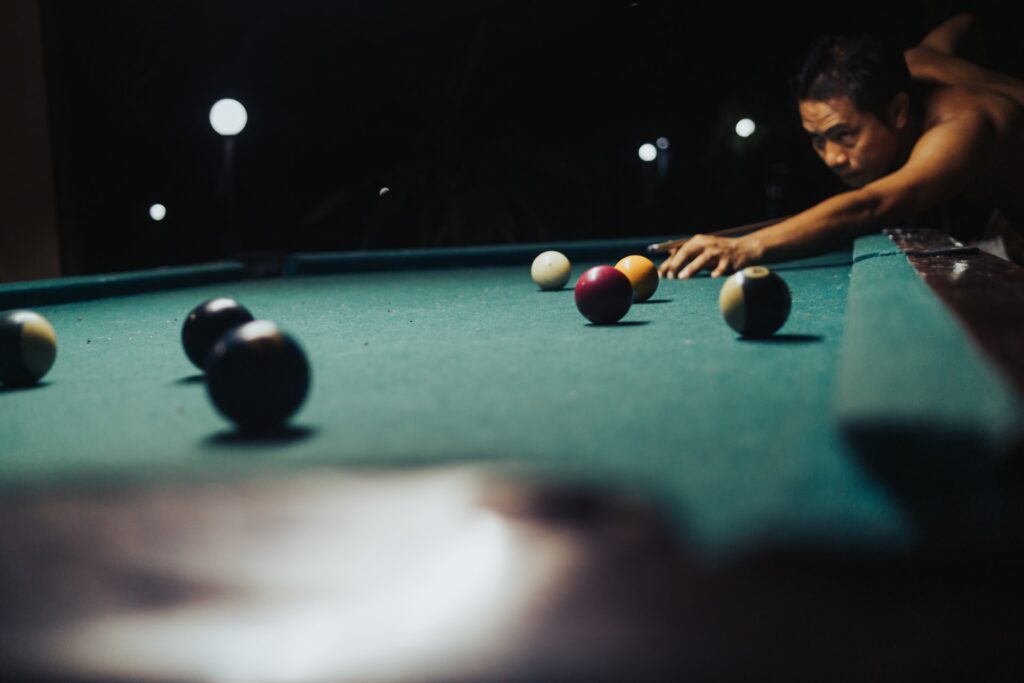
Breaking is a critical aspect of playing pool. Players with fast and powerful breaks are able to play better. Powerful breaks are a combination of speed, power and good wrist action. Some players get breaking cues to improve their games. It is, however, essential to note that this does not always work for everyone.
Breaks inform on how your games will go, and practising is vital. The best tip for practising your breaks is to place the ball at the centre of the table. This should be followed by a break such that the cue stick extends far out. After breaking, try to keep the ball at the centre of the table.
Remember that the breaking utilizes the cue ball’s energy by distributing it to the rest of the balls. To get the most out of your breaks, ensure the balls are racked tightly so that they absorb all the energy. When doing breaks, stand a little higher to reduce your body weight for effective follow-through.
Take Away
Just like when mastering any other game, practice makes perfect. You cannot miss this step, and you need to equip yourself with the correct information. To improve your game, pay attention to crucial things like the grip, stance, breaks and speed control.

